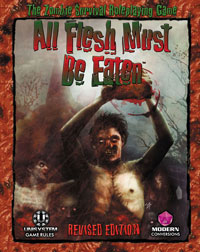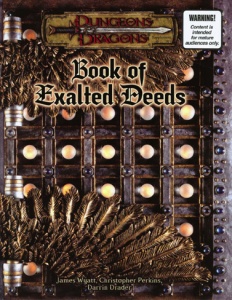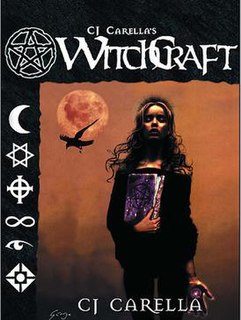
The Ringworld science fiction role-playing game was published by Chaosium in 1984, using the Basic Role-Playing system for its rules and Larry Niven's Ringworld novels as a setting.

Chinese mythology is mythology that has been passed down in oral form or recorded in literature in the geographic area now known as "China". Chinese mythology includes many varied myths from regional and cultural traditions. Much of the mythology involves exciting stories full of fantastic people and beings, the use of magical powers, often taking place in an exotic mythological place or time. Like many mythologies, Chinese mythology has in the past been believed to be, at least in part, a factual recording of history. Along with Chinese folklore, Chinese mythology forms an important part of Chinese folk religion. Many stories regarding characters and events of the distant past have a double tradition: ones which present a more historicized or euhemerized version and ones which presents a more mythological version.

Vampire: The Masquerade is a tabletop role-playing game created by Mark Rein-Hagen and released in 1991 by White Wolf Publishing as the first of several Storyteller System games for its World of Darkness setting line. It is set in a fictionalized "gothic-punk" version of the modern world, where players assume the roles of vampires, who are referred to as "Kindred", and deal with their night-to-night struggles against their own bestial natures, vampire hunters and each other.

An elemental is a mythic being that is described in occult and alchemical works from around the time of the European Renaissance, and particularly elaborated in the 16th century works of Paracelsus. According to Paracelsus and his subsequent followers, there are four categories of elementals, which are gnomes, undines, sylphs, and salamanders. These correspond to the four Empedoclean elements of antiquity: earth, water, air, and fire, respectively. Terms employed for beings associated with alchemical elements vary by source and gloss.
World of Darkness is a series of tabletop role-playing games, originally created by Mark Rein-Hagen for White Wolf Publishing. It began as an annual line of five games in 1991–1995, with Vampire: The Masquerade, Werewolf: The Apocalypse, Mage: The Ascension, Wraith: The Oblivion, and Changeling: The Dreaming, along with off-shoots based on these. The series ended in 2004, and was rebooted with a new line of games; in 2011, the original series was brought back, and has since been published concurrently with the Chronicles of Darkness reboot.

A campaign setting is usually a fictional world which serves as a setting for a role-playing game or wargame campaign. A campaign is a series of individual adventures, and a campaign setting is the world in which such adventures and campaigns take place. Usually a campaign setting is designed for a specific game or a specific genre of game. There are numerous campaign settings available both in print and online. In addition to published campaign settings available for purchase, many game masters create their own settings, often referred to as "homebrew" settings or worlds.

Nephilim is a role-playing game about powerful elemental entities reincarnating into human beings. The players take the roles of these beings as they adapt to their newly symbiotic existence and learn the secrets hidden behind veils of obscurity and mysticism, seeking the path toward enlightenment, Agartha. The game contains much symbolism, primarily related to the Hermetic tradition.

The manananggal is an old mythical creature in the Philippines that separates from their lower part of body and their fangs and wings give it a vampire-like appearance.

All Flesh Must Be Eaten or AFMBE (ISBN 1-891153-31-5) is a multiple Origins Award winning and nominated survival horror role-playing game (RPG) produced by Eden Studios, Inc. using the Unisystem game system. AFMBE is derived from the traditional horror movie depictions of zombies who rise from the dead as mindless monsters that consume the living. In addition to producing a revised edition and many RPG supplements, there have been many works of fiction published that take place in one of the game's many settings.

The Book of Exalted Deeds is an optional sourcebook for the 3.5 edition of the Dungeons & Dragons role-playing game published by Wizards of the Coast (WotC) in 2003. It provides supplementary game material for campaigns involving characters of good alignment. Within the game, there is also a powerful magical artifact of the same name.

In many works of modern fantasy, elves are depicted as a race or species of pointy-eared humanoid beings. These depictions arise from the álfar of Norse mythology influencing elves in fantasy as being semi-divine and of human stature, whose key traits are being friendly with nature and animals. However, this differs from Norse and the traditional elves found in Middle Ages folklore and Victorian era literature.

Kenneth Hite is a writer and role-playing game designer. Hite is the author of Trail of Cthulhu and Night's Black Agents role-playing games, and lead designer of the 5th edition of Vampire: the Masquerade.

CJ Carella's WitchCraft, or more informally WitchCraft (ISBN 978-1891153402), is a modern horror role-playing game published by Eden Studios, Inc. It is based on the Unisystem game system and had been previously published by Myrmidon Press. In both cases it was designed and written by C. J. Carella. WitchCraft was the first RPG to use the Unisystem game system.
Sources and influences on the development of Dungeons & Dragons include fantasy fiction, mythology, and wargaming rules, among others.

The original Dungeons & Dragons boxed set by Gary Gygax and Dave Arneson was published by TSR, Inc. in 1974. It included the original edition of the Dungeons & Dragons fantasy role-playing game. Its product designation was TSR 2002.

Tall Tales of the Wee Folk is an accessory for the Dungeons & Dragons fantasy role-playing game.
Geoffrey C. Grabowski is a role-playing game designer and writer, known primarily as line developer for the 1st edition of the Exalted RPG for White Wolf games from 2001 through 2006. He was described as the "guiding force" of the first edition.

GURPS Werewolf: The Apocalypse is a supplement published by Steve Jackson Games (SJG) in 1993 that translates the role-playing game Werewolf: The Apocalypse to the GURPS rules set.














